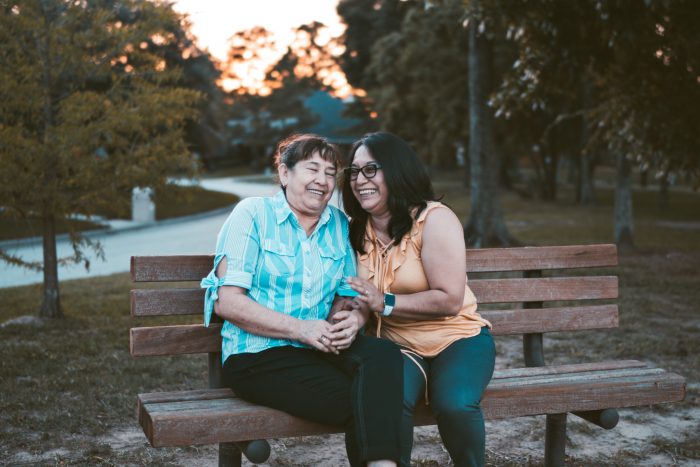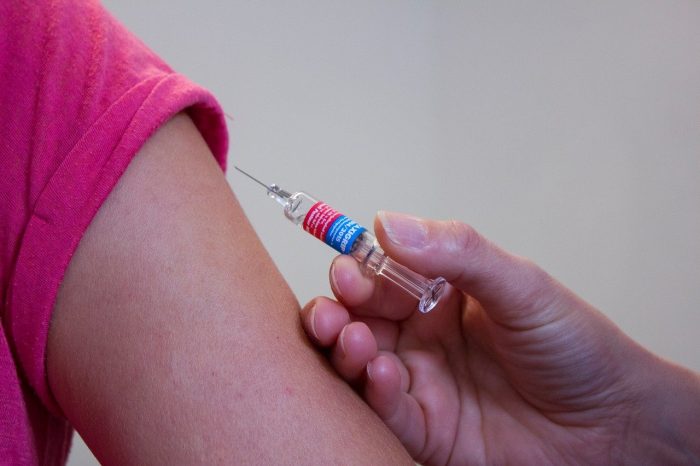October 10 is World Mental Health Day — “Making Mental Health & Wellbeing for All a Global Priority”


The National Alliance for Direct Support Professionals (NADSP) shared this report:
Direct Support Workforce and COVID-19 National Report: 12-Month Follow-up
While vaccination rates have improved among professionals supporting people with intellectual and developmental disabilities since the early days of the COVID-19 pandemic, their mental and physical health have declined, a new survey shows.
The Institute on Community Integration, in partnership with the National Alliance for Direct Support Professionals (NADSP), surveyed 2,657 DSPs and frontline supervisors about their experiences supporting people with IDD during the pandemic. The newly released survey report is a 24-month follow-up to an initial report issued in April 2020. Additional surveys were conducted six and twelve months after the initial report. The survey series represents the largest-ever national study of the DSP workforce.
According to the report, 52% percent of DSPs reported being diagnosed with COVID-19, and 6% were not diagnosed but suspected they had it. Among employers, 65% did not require DSPs to be vaccinated.
Sixteen percent of DSPs remain unvaccinated. Of the 84% who are vaccinated, 67% reported having at least one booster shot.
While vaccination rates have improved from the 12-month survey in 2021 (from 72% to 86%), the mental wellbeing of DSPs has declined. Forty percent of DSPs reported experiencing depression, compared with 36% one year ago; 43% had difficulty sleeping, a 13% increase; and 56% reported increased anxiety, a 14% increase. Fifty-nine percent of respondents said they felt pressure to work extra hours.
“Direct support professionals and frontline supervisors have worked as hard as they can,” said Amy Hewitt, ICI director and lead investigator of the study. “This survey shows that their mental health is worsening, and we don’t have the resources to address it. Working this much overtime is not sustainable.”
A national plan to increase the size of the direct support workforce would help to alleviate multiple troubling issues, Hewitt said.
“This workforce has been overlooked and in crisis for years, with high turnover and vacancy rates, low wages, and lack of access to affordable benefits,” she said.
More than half of DSPs receive government-funded assistance, such as housing, energy, food, and healthcare. The pandemic made staffing even more difficult, increasing stress, expectations, and risk on those who remain in their positions.
The 24-month follow-up survey also looked at changes in technology use during the pandemic. Fifty-nine percent of DSPs reported using technology more or a lot more than before the pandemic. Thirty-six percent of the respondents said the use of technology had a somewhat positive impact on their work, and 14% reported it had a very positive impact. Seventeen percent reported a somewhat negative impact and 3% a very negative impact.
Read the full report, a short version, and select state-specific versions here.
Please contact Jerry Smith with questions.
The Department of Human Services (DHS) Office of Long-Term Living (OLTL) has announced the launch of the American Rescue Plan Act of 2021 (ARPA) Funding Reporting portal. The online portal will be available on September 30, 2022, for OLTL providers to submit costs associated with ARPA funding distributed in 2021 in order to comply with DHS reporting requirements.
Background: ARPA Funding Information
In 2021, federal funding from ARPA was allocated by the General Assembly under Act 24 and enacted by Governor Wolf to provide funding to nursing facilities (NF), personal care homes (PCH), and assisted living residences (ALR). These ARPA funds should be used for COVID-19 relief for costs not otherwise reimbursed by federal, state, or other sources of funding.
In addition, ARPA provided a temporary 10 percent increase to the federal medical assistance percentage (FMAP) for certain Medicaid expenditures for home and community-based services (HCBS). The funding must be used to enhance, expand, or strengthen HCBS. OLTL outlined in its plan to the Centers for Medicare & Medicaid Services (CMS) initiatives to strengthen the workforce and assist Adult Day Services (ADS) providers. The OLTL ARPA plan directed funding to Personal Assistance Service (PAS), Community Integration (CI), and Residential Habilitation (Res Hab) providers to assist with recruitment and retention of direct care workers. The plan also directed additional funding to providers to strengthen ADS.
ARPA funding must be used for things such as sign-on bonuses, retention payments, COVID-19 related leave benefits and paid time off, vaccination incentives, and/or the purchase of personal protective equipment and testing supplies. Additionally, ADS providers can use the funding for retrofitting adult daily living centers, expenses to re-open the centers, and expenses to develop alternative models to provide ADS.
Additional detailed information about the distribution of the 2021 ARPA funding can be found on the DHS Long-Term Care Providers web page.
ARPA Funding Reporting Portal
Effective September 30, 2022, providers can access the portal and begin to report ARPA 2021 costs. Providers can access the portal through the Funding Portal Login web page. The first report due date will be November 30, 2022, and should reflect two reporting periods. Providers are required to submit reports in the portal on a bi-annual basis thereafter according to their exhaustion of the funds. Please reference the chart below.
|
Report Period |
Due Dates |
|
07/01/2021 – 12/31/2021 01/01/2022 – 06/30/2022 |
11/30/2022 |
| 07/01/2022 – 12/31/2022 | 2/28/2023 |
| 01/01/2023 – 6/30/2023 | 8/30/2023 |
| 07/01/2023 – 12/31/2023 | 2/28/2024 |
Providers must keep all documentation related to the costs reported in the final cost report for a minimum of five years.
The Pennsylvania Department of Health (DOH) and the Department of Human Services (DHS) recently released an announcement to personal care homes (PCH) regarding an opportunity to pursue additional support with infection prevention and control, COVID-19 response readiness, and other infectious disease preparedness at no cost.
DOH, in partnership with APIC Consulting Services, has developed a specially-tailored Infection Control and Response (ICAR) tool to assist a limited number of Personal Care Homes through an on-site assessment and consultation, development of improvement action plans, and numerous options for follow-up support.
Please see the announcement for details about pursuing this opportunity. Funding for the program is limited, and access to these services will be on a first come, first served basis. This program is not available to Assisted Living Residences or Personal Care Homes in Philadelphia County.
Questions can be sent electronically.

ODP Announcement 22-105 provides the most recent update to recommendations from the Centers for Disease Control (CDC) about details for COVID-19 vaccine and boosters. Release of this announcement will obsolete “ODPANN 22-046: COVID-19 Vaccine Booster Reminder.”
This updated guidance includes information on newly available booster vaccines, which are referred to as bivalent or updated vaccines. The guidance also discusses the availability of a newer primary vaccine called the Novavax COVID-19 vaccine. The CDC has updated information regarding the vaccination schedule for individuals based on age and provides considerations based on additional factors. Full information is available at the CDC’s Interim Clinical Considerations for Use of COVID-19 Vaccines Currently Approved or Authorized in the United States.